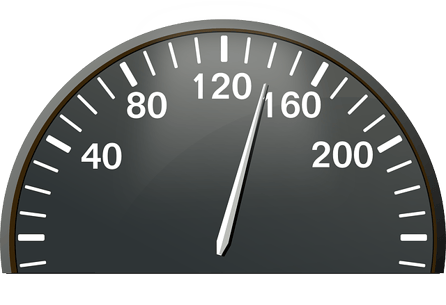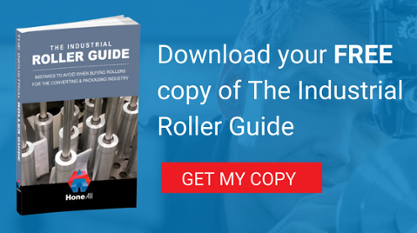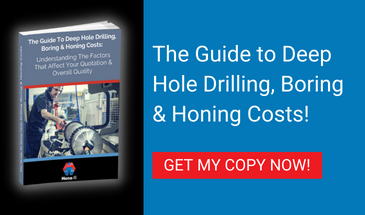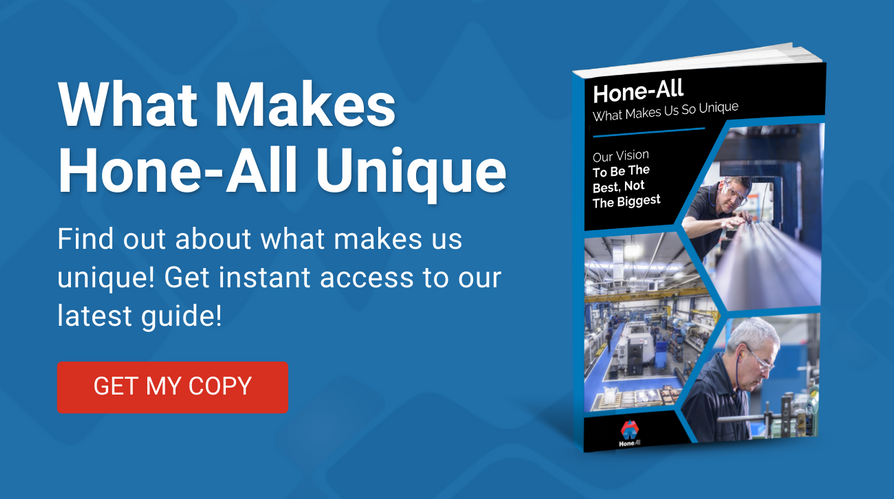 Packaging rollers are often required to perform at high temperatures and in challenging environments. This is no surprise, as industrial rollers are used to process and manufacture every conceivable type of material, from textiles and plastics to paper and thin gauge steel.
Packaging rollers are often required to perform at high temperatures and in challenging environments. This is no surprise, as industrial rollers are used to process and manufacture every conceivable type of material, from textiles and plastics to paper and thin gauge steel.
Heat Transfer Rollers
Commonly, rollers are used to apply adhesives or coatings to packaging materials, such as plastics, paper or laminated foil. These are the so-called heat transfer rollers used by many different packaging applications. Depending on the type of coating, these can be expected to operate at temperatures of 260°C or higher.
Hot rollers are the most commonly used type of heat transfer roller. The adhesive is preheated and then applied to the roller through dipping or spraying. The roller then transfers the adhesive to the packaging material. However, many textile businesses use Cold Rollers, which require the roller itself to heat a cold adhesive up to its operating temperature. This is a more effective means of applying waterproof coatings or working with porous materials.
Getting The Design Right
The purpose and operational criteria are crucial to the performance of a heat transfer roller. With very specific adhesives, temperature ranges, packaging materials and line speeds, every industrial roller has to be precision engineered for exact performance. Even a small discrepancy can affect your rollers line speed and cause increased vibrations, thus changing its operating temperature. This can affect the adhesive quality of your coating and even cause damage to your component.
Clearly, it pays to get the design right.
At Hone–All Precision, we pay very close attention to all the variables you need to get a heat transfer roller suitable for your application. Our engineers have a thorough working knowledge of computational fluid dynamics, which lets us understand all the variables involved when operating at high temperatures.
Modern adhesives and packaging coatings leave very little wiggle room when it comes to their temperature ranges. Our goal is to design your rollers with the optimal rotation speed, line speed and flow rate so that your application produces reliable results over every production run.
The three most important variables when designing heat transfer rollers are the inner chamber dimensions, the metallic plating, and covering.
Inner chamber: The angle and dimensions of your inner chamber are extremely important, especially for hot rollers. The design needs to be accurate to within a fraction of a degree, as even a slight variance can cause large discrepancies in flow rate and temperature.
Coatings: Some of our heat transfer rollers are chrome plated for their chemical resistance and heat transfer properties. When working with plastic packaging, we recommend polished chrome plating to a low RA level. An RA between 4 and 8 will give you a mirror finish, with an RA of less than 1 providing an optical mirror finish. For high temperature or corrosive chemical environments, you may wish to use nickel plating or a sprayed tungsten carbide coating.
Covering: To cope with extreme temperatures and to maintain uniformity of fluid release, many heat transfer rollers use silicon coating. When working with coatings it is essential you use a high quality roller manufacturer, is the roller must be balanced both before and after the coating is applied, to ensure it works at the correct weight.
Professional Maintenance
Heat transfer rollers require occasional maintenance to avoid temperature -related problems. If you notice clogging on your application, with reduced flow rates or poor thermal transfer, rebalancing may be required to restore performance to the correct parameters. Annual acid flushing may be required to read your internal chambers of coagulated adhesive and other debris. In some cases, chrome or silicon coating needs to be replaced or repaired. Maintaining your rollers in this way is frequently cheaper than purchasing new units, and will extend the life-cycle of your application.
Your Free Guide To Industrial Rollers
Have you seen our new Industrial Rollers Guide? Download a free copy by clicking here, and gain access to free information about roller specs, performance criteria, costs, production guidelines and more. If you have any questions about our services, please get in touch with one of our technical sales specialists by calling 0845 5555 111.





